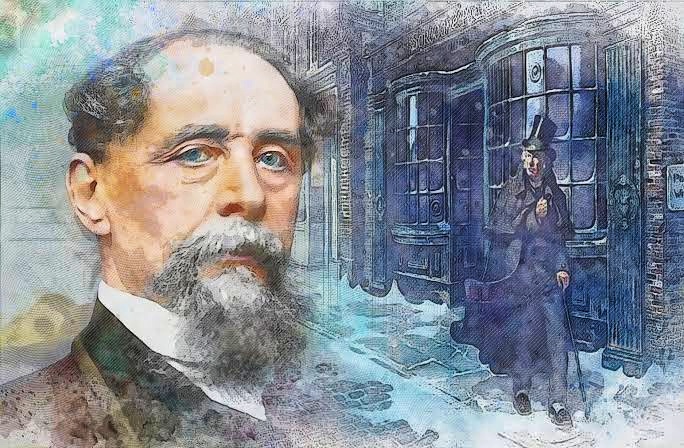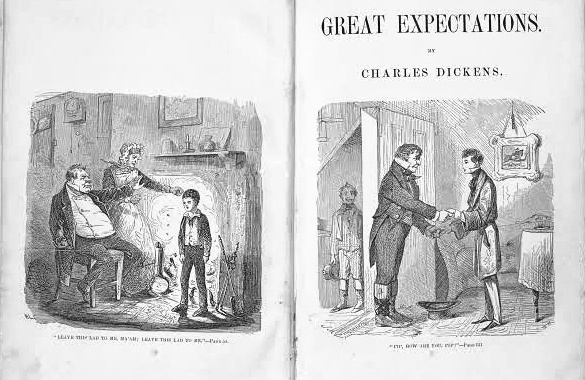Sketch the character of Miss Havisham in Great Expectations by Charles Dickens.

Character of Miss Havisham in Great Expectations
Miss Havisham is one of the most memorable characters in Charles Dickens‘ novel “Great Expectations”. She is a wealthy and eccentric old woman who has been jilted on her wedding day and has since lived a reclusive life, wearing her wedding dress and keeping all the clocks in her house stopped at the exact time when she received the news of her fiancé’s betrayal. Miss Havisham becomes a symbol of the novel’s themes of love, revenge, and the destructive power of time. In this essay, we will explore the character of Miss Havisham in more detail, analyzing her behavior, motivations, and relationships with other characters in the novel.
From the moment we meet Miss Havisham, we are struck by her eerie appearance and behavior. She is described as a “ghastly waxwork” (Chapter 8), with white hair and a ghostly complexion. She wears her wedding dress, which has turned yellow with age, and has kept all the furniture and decorations in her house exactly as they were on the day of her betrayal. This behavior suggests that Miss Havisham has become stuck in time and is unable to move on from her past. She is consumed by her bitterness and anger towards men, whom she sees as heartless and cruel. She tells Pip, the protagonist, that she has adopted Estella, her ward, to break men’s hearts as revenge for her own suffering.
Despite her outward appearance, Miss Havisham is a complex and multidimensional character. She is not simply a madwoman, but rather a victim of circumstance and societal expectations. Her fiancé jilted her on her wedding day, leaving her humiliated and heartbroken. This trauma has left her unable to trust men and has driven her to seek revenge against them. However, Miss Havisham’s revenge scheme is ultimately self-destructive, as it causes her to isolate herself from the world and to become consumed by bitterness and regret. She tells Pip that she is “not sure whether [she] have the power to be regretful” (Chapter 8), suggesting that she is aware of the destructive nature of her emotions but is unable to overcome them.
Miss Havisham’s relationship with Estella is one of the most intriguing aspects of her character. She has raised Estella to be a heartless seductress, training her in the arts of refinement and manipulation. However, Miss Havisham’s intentions towards Estella are not entirely clear. On the one hand, she sees Estella as a tool for revenge against men. On the other hand, she seems to genuinely care for Estella and to want to protect her from the pain that she herself has experienced. Miss Havisham tells Pip that she “had adopted Estella, and had as good as adopted me, and that she had imposed her upon me” (Chapter 29), suggesting that she sees Estella as a surrogate daughter.
As the novel progresses, we begin to see glimpses of Miss Havisham’s vulnerability and regret. She realizes that her revenge scheme has caused harm not only to herself but also to Estella and Pip. She tells Pip that she has “done what I meant to do; but I would have been better if I had never meant it” (Chapter 49), suggesting that she recognizes the futility of her revenge and the damage that it has caused. Miss Havisham’s vulnerability is also on full display in her death scene, where she begs for Pip’s forgiveness and admits that she has been “insane” (Chapter 49).
Miss Havisham is a complex and multifaceted character who embodies the novel’s themes of love, revenge, and the destructive power of time. She is a victim of societal expectations and of the betrayal that she experienced on her wedding day, and her subsequent actions are a product of her trauma and pain. Her obsession with revenge against men and her desire to control Estella’s heart are misguided attempts to regain the power and control that she lost. However, these actions ultimately lead to her own destruction and the suffering of those around her.
Despite her many flaws and the harm she causes, Miss Havisham is also a sympathetic character who elicits pity and compassion. Her vulnerability and regret in her final moments humanize her and make her more relatable. She serves as a cautionary tale about the dangers of holding onto anger and bitterness, and about the importance of forgiveness and moving on.
Overall, Miss Havisham is a pivotal character in “Great Expectations” and one of Charles Dickens’ most memorable creations. Her haunting presence lingers long after the novel is finished, and her tragic story serves as a reminder of the consequences of unresolved trauma and the power of redemption.
*****
Read More: Great Expectations by Charles Dickens

